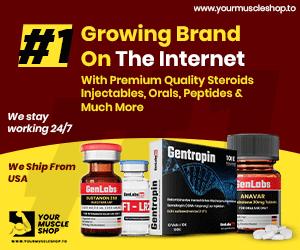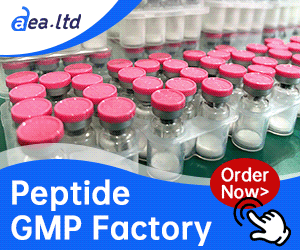- Joined
- Oct 31, 2019
- Messages
- 39
- Reaction score
- 13
- Points
- 3
Interesting look at the effect of 3 different HCG doses (250,500,1000iu) on adult men currently receiving TRT. Looks like 500 units QOD is the way to go to keep sperm count at baseline. From
Healio- Endocrine Today
I’d post the link but count not high enough yet. Article title is: Low-dose hCG can prevent sterility in men prescribed testosterone
“Low-dose human chorionic gonadotropin or HCG may preserve spermatogenesis in men with hypogonadism treated with intramuscular or transdermal testosterone replacement therapy, according to a speaker at the Androgen Society annual meeting.
The estimated male population in their reproductive years is about 52 million in the United States, with the age of first-time fathers rising, and about 2.5 million of those men are estimated to have low testosterone, Larry I. Lipshultz, MD, a professor of urology and chief of the division of male reproductive medicine and surgery at Baylor College of Medicine in Houston, said during a presentation. Intratesticular testosterone — typically 50 to 100 times higher than serum testosterone levels — is a prerequisite for normal sperm production in men; however, exogenous testosterone prescribed to men with hypogonadism suppresses the intratesticular testosterone level, impairing fertility.
“When one introduces exogenous testosterone, whether it is topical or injectable, what we see is [gonadotropin-releasing hormone] is turned off, gonadotropins decrease, and we see a corresponding decrease in testosterone within the testes and an associated turnoff of sperm production,” Lipshultz said. “A lot of what we know about this phenomenon comes from previous studies in male contraception using testosterone.”
hCG studies
Small studies suggest that men treated with testosterone who subsequently developed azoospermia experienced a recovery of spermatogenesis in about 4 months after discontinuing exogenous testosterone, regardless of the testosterone preparation, and initiating intramuscular hCG every other day, Lipshultz said. However, the studies were single-arm, observational and retrospective in nature, he added.
“We concluded that impairment of fertility following testosterone replacement therapy suppression is reversable, and the rate of sperm return appears unrelated to the [testosterone] delivery system,” Lipshultz said. “But, giving some type of stimulatory agent avoids the unwanted, severe hypogonadal symptoms these men would have experienced had they just suddenly stopped the testosterone.”
The findings, Lipshultz said, led researchers to question whether it was possible to prevent sterility in a man with hypogonadism who must use testosterone.
In a study published in 2005 in The Journal of Clinical Endocrinology & Metabolism, Andrea D. Coviello, MD, a reproductive endocrinologist and practicing clinician and researcher at Boston University School of Medicine, and colleagues analyzed data from 29 men with normal reproductive physiology randomly assigned to 200 mg testosterone enanthate weekly in combination with saline placebo or 125 IU, 250 IU or 500 IU hCG every other day for 3 weeks. The researchers found that intratesticular testosterone increased linearly with increasing hCG dose, demonstrating that a relatively low dose of hCG maintains intratesticular testosterone within the normal range in healthy men with gonadotropin suppression, Lipshultz said.
“Without any hCG replacement ... there was literally no intratesticular testosterone, and then as hCG was given in a stepwise fashion, once it reached about 500 U, you were back to baseline [level],” Lipshultz said. “Using this data, and realizing that despite very high doses of testosterone, there were high levels of intratesticular testosterone maintained with low-dose hCG, we then asked whether this low-dose maintenance could also protect spermatogenesis during testosterone treatment.”
A small, prospective study indicated that may be true, Lipshultz said. In data from an abstract presented at the American Urological Association annual meeting in 2010, Lipshultz and colleagues analyzed data from 10 men prescribed intramuscular testosterone (n = 8) or transdermal testosterone (n = 2) along with 500 U intramuscular hCG every other day. Men underwent routine semen analyses throughout the study (mean follow-up, 4.5 months).
“Interestingly enough, no one became azoospermic,” Lipshultz said. “More importantly, using the patients as their own controls, we saw only a minimal decline in density at the end of the study period.”
In an expanded study assessing a larger population of 26 patients, results were similar, Lipshultz said. Low-dose hCG appeared to maintain sperm quality in men with hypogonadism using testosterone replacement therapy.
“Low-dose hCG may be beneficial for men in their reproductive years requiring testosterone replacement therapy,” Lipshultz said. “Longer follow-up is needed to determine whether this benefit is sustained both qualitatively and quantitatively.”
Strategy for clinicians
To maintain fertility in men with hypogonadism prescribed testosterone, Lipshultz said, clinicians should first insist on a semen analysis before beginning testosterone treatment.
“Patients need to realize that 2% of all men are sterile,” Lipshultz said. “We need to know where the individual is before we introduce testosterone because our endpoint may not be able to be any better than pre-treatment level.”
If the man desires a future pregnancy, the clinician should prescribe hCG concurrent with testosterone therapy, typically at 500 U subcutaneous three times per week or 1,500 U once weekly if the patient wishes only to prevent testicular atrophy. The patient should cycle off of testosterone twice yearly, at a rate of 3,000 U three times per week for 4 weeks, adding 25 mg daily clomiphene therapy during that period, Lipshultz said. However, for men desiring a pregnancy, 3,000 U hCG three times per week should be prescribed in addition to clomiphene therapy. Clinicians should check the patient’s follicle-stimulating hormone (FSH) level and conduct a semen analysis after 4 months for men desiring pregnancy; if the FSH level is not sufficiently elevated, the clinician should discontinue clomiphene and instead introduce FSH concurrent with the hCG, he said.
“To date, we have not had any patients who did not return to baseline,” Lipshultz said, referring to the regimen.
Healio- Endocrine Today
I’d post the link but count not high enough yet. Article title is: Low-dose hCG can prevent sterility in men prescribed testosterone
“Low-dose human chorionic gonadotropin or HCG may preserve spermatogenesis in men with hypogonadism treated with intramuscular or transdermal testosterone replacement therapy, according to a speaker at the Androgen Society annual meeting.
The estimated male population in their reproductive years is about 52 million in the United States, with the age of first-time fathers rising, and about 2.5 million of those men are estimated to have low testosterone, Larry I. Lipshultz, MD, a professor of urology and chief of the division of male reproductive medicine and surgery at Baylor College of Medicine in Houston, said during a presentation. Intratesticular testosterone — typically 50 to 100 times higher than serum testosterone levels — is a prerequisite for normal sperm production in men; however, exogenous testosterone prescribed to men with hypogonadism suppresses the intratesticular testosterone level, impairing fertility.
“When one introduces exogenous testosterone, whether it is topical or injectable, what we see is [gonadotropin-releasing hormone] is turned off, gonadotropins decrease, and we see a corresponding decrease in testosterone within the testes and an associated turnoff of sperm production,” Lipshultz said. “A lot of what we know about this phenomenon comes from previous studies in male contraception using testosterone.”
hCG studies
Small studies suggest that men treated with testosterone who subsequently developed azoospermia experienced a recovery of spermatogenesis in about 4 months after discontinuing exogenous testosterone, regardless of the testosterone preparation, and initiating intramuscular hCG every other day, Lipshultz said. However, the studies were single-arm, observational and retrospective in nature, he added.
“We concluded that impairment of fertility following testosterone replacement therapy suppression is reversable, and the rate of sperm return appears unrelated to the [testosterone] delivery system,” Lipshultz said. “But, giving some type of stimulatory agent avoids the unwanted, severe hypogonadal symptoms these men would have experienced had they just suddenly stopped the testosterone.”
The findings, Lipshultz said, led researchers to question whether it was possible to prevent sterility in a man with hypogonadism who must use testosterone.
In a study published in 2005 in The Journal of Clinical Endocrinology & Metabolism, Andrea D. Coviello, MD, a reproductive endocrinologist and practicing clinician and researcher at Boston University School of Medicine, and colleagues analyzed data from 29 men with normal reproductive physiology randomly assigned to 200 mg testosterone enanthate weekly in combination with saline placebo or 125 IU, 250 IU or 500 IU hCG every other day for 3 weeks. The researchers found that intratesticular testosterone increased linearly with increasing hCG dose, demonstrating that a relatively low dose of hCG maintains intratesticular testosterone within the normal range in healthy men with gonadotropin suppression, Lipshultz said.
“Without any hCG replacement ... there was literally no intratesticular testosterone, and then as hCG was given in a stepwise fashion, once it reached about 500 U, you were back to baseline [level],” Lipshultz said. “Using this data, and realizing that despite very high doses of testosterone, there were high levels of intratesticular testosterone maintained with low-dose hCG, we then asked whether this low-dose maintenance could also protect spermatogenesis during testosterone treatment.”
A small, prospective study indicated that may be true, Lipshultz said. In data from an abstract presented at the American Urological Association annual meeting in 2010, Lipshultz and colleagues analyzed data from 10 men prescribed intramuscular testosterone (n = 8) or transdermal testosterone (n = 2) along with 500 U intramuscular hCG every other day. Men underwent routine semen analyses throughout the study (mean follow-up, 4.5 months).
“Interestingly enough, no one became azoospermic,” Lipshultz said. “More importantly, using the patients as their own controls, we saw only a minimal decline in density at the end of the study period.”
In an expanded study assessing a larger population of 26 patients, results were similar, Lipshultz said. Low-dose hCG appeared to maintain sperm quality in men with hypogonadism using testosterone replacement therapy.
“Low-dose hCG may be beneficial for men in their reproductive years requiring testosterone replacement therapy,” Lipshultz said. “Longer follow-up is needed to determine whether this benefit is sustained both qualitatively and quantitatively.”
Strategy for clinicians
To maintain fertility in men with hypogonadism prescribed testosterone, Lipshultz said, clinicians should first insist on a semen analysis before beginning testosterone treatment.
“Patients need to realize that 2% of all men are sterile,” Lipshultz said. “We need to know where the individual is before we introduce testosterone because our endpoint may not be able to be any better than pre-treatment level.”
If the man desires a future pregnancy, the clinician should prescribe hCG concurrent with testosterone therapy, typically at 500 U subcutaneous three times per week or 1,500 U once weekly if the patient wishes only to prevent testicular atrophy. The patient should cycle off of testosterone twice yearly, at a rate of 3,000 U three times per week for 4 weeks, adding 25 mg daily clomiphene therapy during that period, Lipshultz said. However, for men desiring a pregnancy, 3,000 U hCG three times per week should be prescribed in addition to clomiphene therapy. Clinicians should check the patient’s follicle-stimulating hormone (FSH) level and conduct a semen analysis after 4 months for men desiring pregnancy; if the FSH level is not sufficiently elevated, the clinician should discontinue clomiphene and instead introduce FSH concurrent with the hCG, he said.
“To date, we have not had any patients who did not return to baseline,” Lipshultz said, referring to the regimen.
Last edited:








